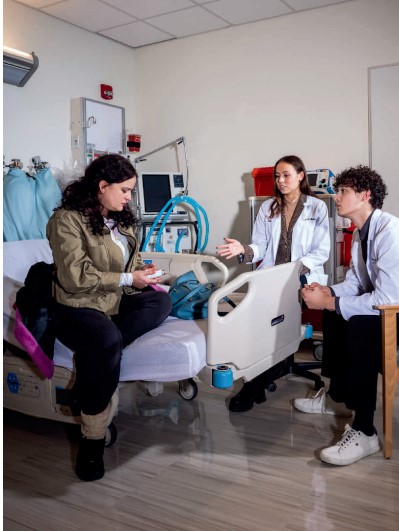Greer, D., Barta, L., Liu, M. T., & Andrews, L. B. (2024). Subjective and objective benefits of a novel opioid‐related disorders simulation learning experience for pharmacy students. Journal of the American College of Clinical Pharmacy, 7(2), 133-139.
Donovan, C. M. (2023). Augmented reality integration in manikin-based simulations: bringing basic science to the critical care bedside with limited augmented reality resources. Medical Science Educator, 33(4), 829-833.
Barbarello Andrews, L., & Barta, L. (2021, April). Simulation To Teach Pharmacist’s Patient Care Planning and Assessment of Pain and Agitation Management in Critical Care. In International Meeting on Simulation in Healthcare (IMSH 2021) Technical Proceedings.
Donovan, C. M., Cooper, A., & Kim, S. (2021). Ready patient one: how to turn an in-person critical care simulation scenario into an online serious game. Cureus, 13(9).
Johnston, J. P., Andrews, L. B., Adams, C. D., Cardinale, M., Dixit, D., Effendi, M. K., … & Opsha, Y. (2021). Implementation and evaluation of a virtual learning advanced pharmacy practice experience. Currents in Pharmacy Teaching and Learning, 13(7), 862-867.
Herrigel, D. J., Donovan, C., Goodman, E., Pradhan, A., Bridgeman, M. M., Hogshire, L., … & Kim, S. (2020). Simulation as a platform for development of entrustable professional activities: a modular, longitudinal approach. Cureus, 12(10).

